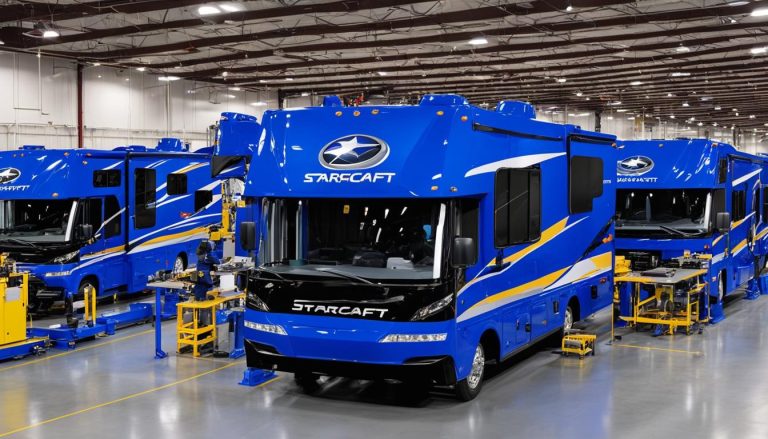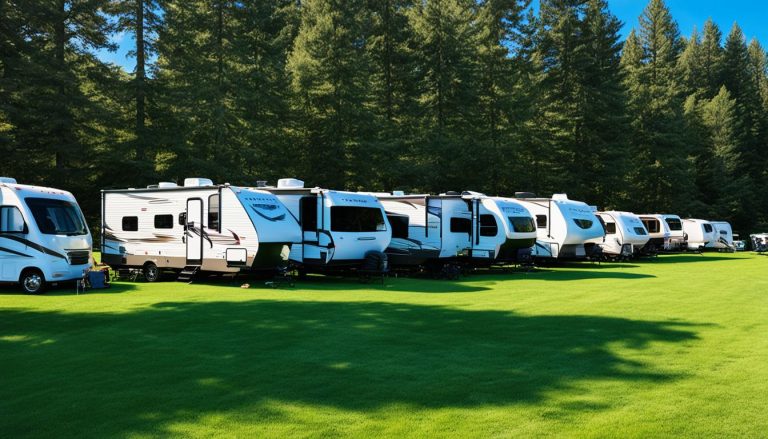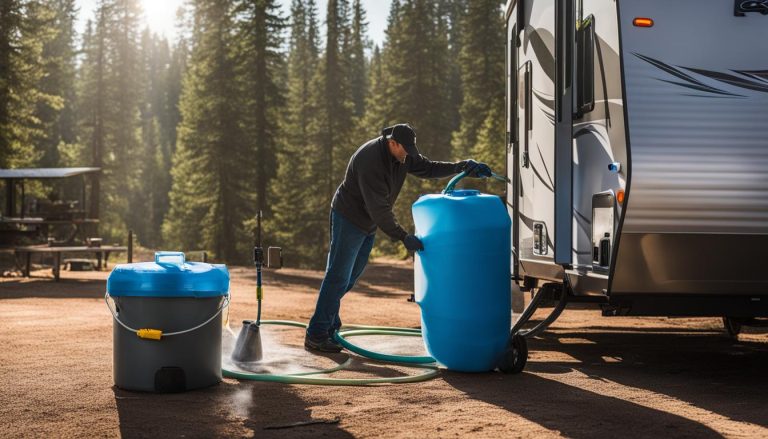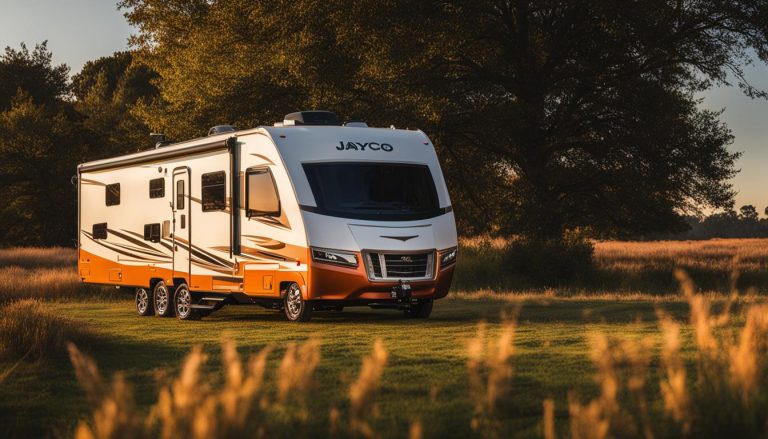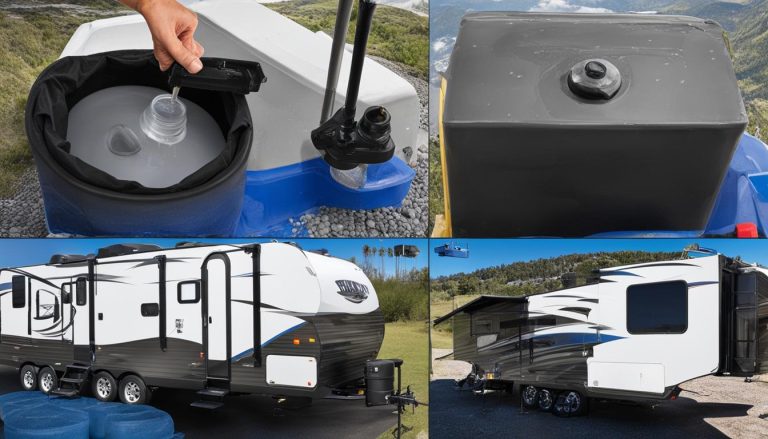Stay Connected: How to Have Internet in RV
gorvlifestyle.com and its partners may earn a commission if you purchase a product through one of our links
With the right setup and gear, you can have internet access almost anywhere in your RV. Whether you’re a digital nomad, a remote worker, or just want to stay connected on your road trips, having reliable internet in your RV is essential. In this article, we’ll explore the various options for RV internet access and help you choose the best solution for your needs.
Key Takeaways:
- There are two primary options for RV internet: cellular data and campground WiFi.
- For basic internet usage like email and social media, campground WiFi or using your phone as a mobile hotspot may be sufficient.
- If you need reliable and high-speed internet for work or streaming, consider an unlimited data plan with a dedicated cellular connection.
- Boosting your campground WiFi signal with a WiFi extender or repeater can improve connectivity.
- Satellite internet is a suitable option for remote or rural areas, but it may require a higher upfront cost.
Determining Your Connectivity Needs
Before choosing an RV WiFi solution, it’s important to determine your connectivity needs. Consider how you plan to use the internet – whether it’s for basic tasks like email and social media or more data-intensive activities like streaming movies or working online.
If you only use the internet occasionally, a minimal internet setup may suffice, such as relying on campground WiFi or using your phone as a mobile hotspot. However, if you need reliable and high-speed internet for work or other demanding tasks, an unlimited data plan with at least 100GBs of data per month is recommended.
It’s also important to consider the internet speed you need for your activities, such as video conferencing or streaming content. Conducting speed tests can help determine the quality of your internet connection and whether it meets your requirements.
Key Considerations:
- Frequency of internet usage
- Data-intensive activities
- Reliable and high-speed internet needs
- Minimum data plan requirements
- Internet speed requirements
Knowing your connectivity needs is crucial in selecting the right RV WiFi solution. Choosing the appropriate data plan and internet speed ensures that you have a seamless online experience during your trips. Don’t compromise on your internet requirements, as it can directly impact your productivity and enjoyment on the road.
RV WiFi Options: Cellular Data and Campground WiFi
When it comes to staying connected in your RV, there are two common options for WiFi – using cellular data and connecting to campground WiFi. Each option has its pros and cons, so it’s essential to understand them before deciding which one is right for you.
Campground WiFi: Reliable or Not?
Campground WiFi is a popular choice for RVers as it offers the convenience of a pre-existing network. However, it can be unreliable and slow due to various factors:
- Distance from the router: The further you are from the router, the weaker the WiFi signal becomes, leading to slower internet speeds.
- Interference from other devices: With many campers trying to connect to the same network, interference can occur, further impacting the WiFi connection.
- Reliance on slower internet types: Campgrounds often use satellite or DSL connections, which tend to be slower than fiber or cable connections.
To overcome these challenges and improve your connectivity to campground WiFi, you can use a WiFi extender or repeater. A WiFi extender boosts the existing WiFi signal, making it reach further distances, while a repeater amplifies the signal throughout your RV. These devices can help you achieve a more reliable and faster internet connection, especially when camping in larger campgrounds or at campsites further away from the router.
However, it’s essential to note that relying solely on campground WiFi may not be sufficient, especially if you require a reliable and high-speed connection. If you plan to stream movies, work online, or have other data-intensive activities, an alternate solution may be necessary.
Cellular Data: Your Gateway to Internet Everywhere
Cellular data is an excellent option for RVers who need internet access in areas with good cell coverage. By using your phone as a mobile hotspot, you can create a WiFi network for your devices to connect to. It’s a convenient solution that allows you to access the internet wherever you have a cell signal.
However, it’s important to consider that using your phone as a mobile hotspot has a few drawbacks. Tethering can be slower and less reliable compared to using a dedicated hotspot device. Additionally, using your phone as a hotspot consumes its battery life, which may be an inconvenience during longer trips.
To fully leverage cellular data, it’s recommended to invest in a dedicated hotspot device. These devices are specifically designed to provide reliable and fast internet access for your RV. They offer features like extended battery life, better coverage, and the ability to connect multiple devices simultaneously.
When choosing a cellular data plan, consider the options offered by major cell phone providers like Verizon, T-Mobile, AT&T, and Sprint. Look for plans that provide the best coverage and unlimited data options to ensure you have the connectivity you need while on the road.
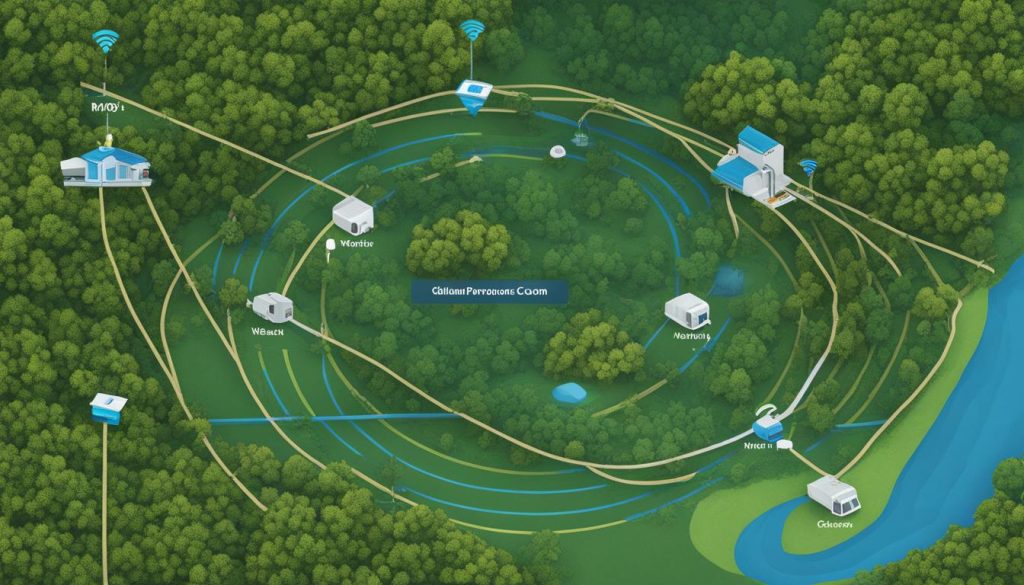
Overall, the choice between campground WiFi and cellular data depends on your specific needs and preferences. If you prioritize convenience and are satisfied with occasional access, campground WiFi may suffice with the help of a WiFi extender or repeater. However, if you require a reliable and high-speed connection for streaming or work purposes, cellular data with a dedicated hotspot device is the recommended option. Consider your internet usage habits, data requirements, and coverage availability to make the best decision for your RV WiFi setup.
Satellite Internet for RVs
If you plan on staying in one place for an extended period and require internet access in remote or rural areas, satellite internet may be a suitable option for your RV. Satellite internet relies on signals from satellites in orbit, providing coverage in areas where other types of internet may be unavailable. Companies like Starlink, Viasat, and HughesNet offer satellite internet plans for RVs, with options for both stationary and mobile setups.
Starlink, for example, provides high-speed internet on-the-go with its Starlink Mobility service, while Viasat and HughesNet offer data plans with unlimited data (although speeds may be throttled after reaching a certain usage limit).
Satellite internet can provide reliable connectivity in areas with limited wired or cellular infrastructure, but it may require a higher upfront cost for equipment and installation. Explore your options and compare the offerings of different providers to find the best satellite internet plan for your RV.
Benefits of Satellite Internet for RVs:
- Reliable coverage in remote or rural areas
- High-speed internet on-the-go
- Options for both stationary and mobile RV setups
- Data plans with unlimited data
Here’s a comparison of the top satellite internet providers for RVs:
| Provider | Plan | Speed | Price |
|---|---|---|---|
| Starlink | Starlink Mobility | Up to 150 Mbps | $99/month |
| Viasat | Unlimited Platinum 100 | Up to 100 Mbps | $150/month |
| HughesNet | Unlimited Data | Up to 25 Mbps | $99.99/month |
While satellite internet can provide reliable connectivity, it’s important to note that it may not be available in all locations and some plans may have data usage limits or speed throttling. Consider your specific needs, location, and budget when choosing a satellite internet plan for your RV.
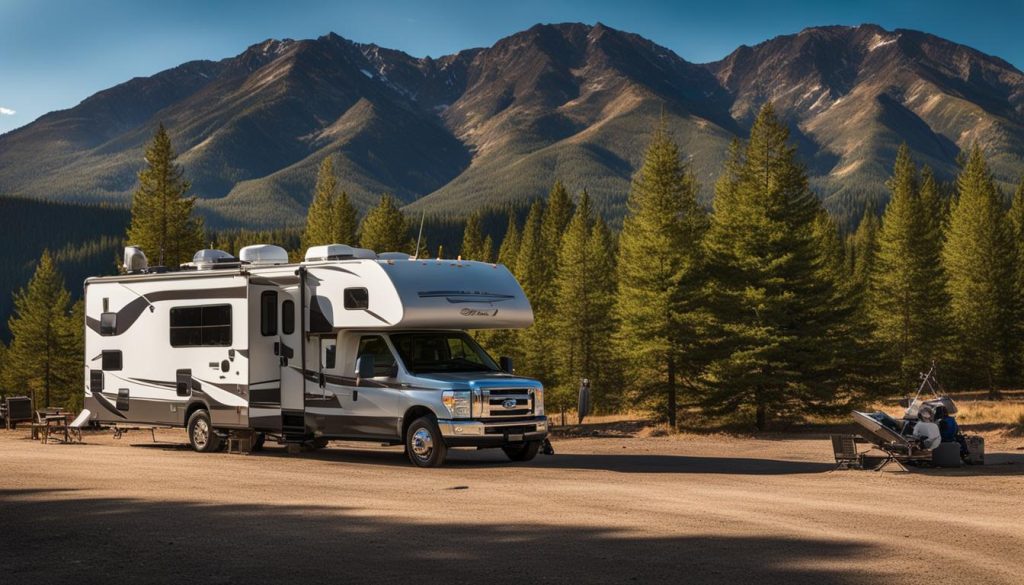
Mobile Hotspots and Cellular Routers
When it comes to staying connected on the road, mobile hotspots and cellular routers are popular choices for RV internet access. A mobile hotspot allows you to create a WiFi network by utilizing your phone’s cellular data. It’s a convenient option for short trips or occasional internet use. However, for long-term or data-intensive activities, a mobile hotspot may not provide the reliability and speed you need.
On the other hand, cellular routers are standalone devices that act as mobile modems, providing WiFi access in your RV without relying on your phone. These routers can offer more robust and consistent internet connectivity, making them a great choice for those who require reliable and high-speed internet on the road. However, it’s important to note that cellular routers require a suitable cellular data plan to function effectively.
If you prefer a hassle-free solution, paid hotspots offered by reputable providers like Spectrum, Xfinity, AT&T, Verizon, and T-Mobile are available. These hotspots can be accessed through your home internet service provider or as standalone devices with their own data plans. By considering the coverage and data offerings of different providers, you can find the best option for your RV internet needs.
FAQ
How can I have internet in my RV?
There are two primary options for RV internet – using cellular data from a provider or connecting to a local WiFi network.
How do I determine my connectivity needs for RV WiFi?
Consider how you plan to use the internet – whether it’s for basic tasks like email and social media or more data-intensive activities like streaming movies or working online. Conducting speed tests can also help determine the quality of your internet connection.
Can I rely on campground WiFi for internet access in my RV?
Campground WiFi can be unreliable and slow, so investing in a WiFi extender or repeater can help boost your signal. However, relying solely on campground WiFi may not be sufficient for reliable and high-speed connection.
Is satellite internet an option for RVs?
Yes, satellite internet can provide reliable connectivity in remote or rural areas where other types of internet may be unavailable. Companies like Starlink, Viasat, and HughesNet offer satellite internet plans for RVs.
What are mobile hotspots and cellular routers?
A mobile hotspot allows you to create a WiFi network by using your phone’s cellular data. Cellular routers, on the other hand, are standalone devices that act as mobile modems, providing WiFi access in your RV without relying on your phone.


